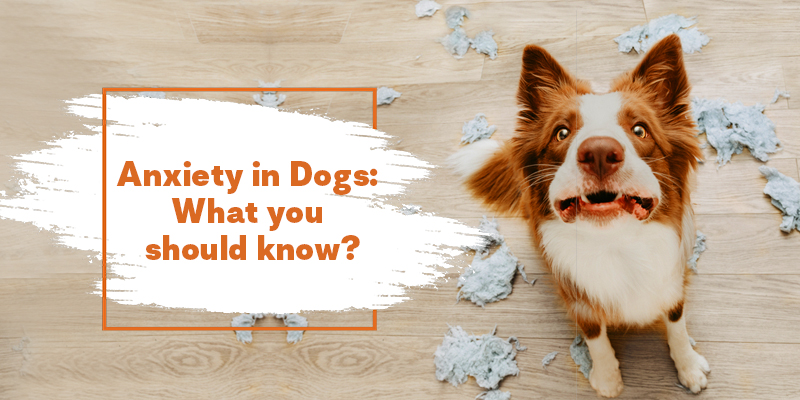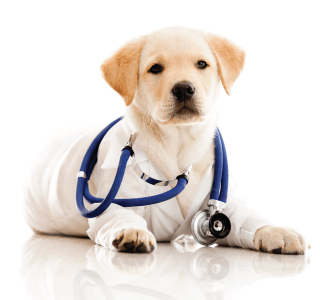Anxiety in Dogs: What You Should Know?

May 3 to May 9 is celebrated as dog anxiety awareness week. This time is when it’s important to realize that dogs like humans are capable of anxiety. Extended separation from their guardian is one of the most common reasons for anxiety in dogs.
That’s why through this blog we want to make you aware of the symptoms and causes of anxiety in dogs and what you can do as pet parents to make your pet feel secure and calm.
Signs of Anxiety in Dogs
Do you see a destructive behavior change in your pet, or is he barking more lately? There are many signs, that you may feel normal, that actually say a lot about your dog’s emotional feelings, fear, and anxiousness. It’s important not to ignore any new behavioral change in your pet.
Here are some common signs to watch out for that say that there’s something that’s your pet doesn’t feel right about.
- Visibly tensed and is afraid
- Growling teeth and arching his back
- Panting and pacing a lot
- Destroying a lot of things
- Trying to escape
- Excessively licking paws and tail
- Change in appetite/ avoiding meals
- Sudden change in bathroom habits
Possible Reasons for Anxiety in Dog
Several life changes and events can cause anxiety in your pet, it’s better to stay prepared for such events before they affect your pet’s mental health:
Sound
Dogs do not like deafening noises; the sound of storms and fireworks can put a troll on them and that’s the reason they are frightful during stormy weather and the holiday season. Moreover, if you are staying in a noisy neighborhood, it can provoke anxiety.
Life changes
Normal changes in your life can appear huge to your pets. Adopting a new environment or new people may provoke anxiety in them. These changes may include moving to a new house, introducing a newborn baby, the demise of a family member, or more.
Separation, changing parents
Separation is the most triggering reason for anxiety in dogs. It can spark even when pet parents stay out a little more than usual. Many dogs experience changing owners and all of them have treated her differently; these changing behaviors apparently can raise anxiety in a dog.
Sickness
Anxiety in dogs can also be due to a sudden injury and it may also result because of other medical issues. So if you are facing a major change in your pet’s behavior consult your vet.
Preventing & Treating Dog Anxiety
A Gentle massage
Anxiety leads to muscle tension. A gentle massage can release tension in your pet, making them feel calm. However, avoid overdoing it.
Cuddling session
Try to extend your cuddling session with your pet, when he feels sad or anxious; you can also make it more rewarding by giving him a treat or praise.
Exercise and Play
Anxiety often lowers energy, to make your pet feel energized, play with him, go for walks, and do dog activities to make him stay active. Daily exercises are not only a great way to bond with your pet, but it also helps release endorphins that relieve stress.
Traumatic experiences and anxiety in dogs can even result in severe health conditions like hypothyroidism, hearing loss, or neurological problems. It’s a must to take your pet for a full-body examination by a vet and learn about your dog’s health condition. Take the above-mentioned steps to make your dog happy and stress-free.

David joined CanadaVetCare in 2013 as a product analyst and veterinary assistant. Being a passionate pet lover and keen animal health researcher, David had always found ways and solutions to help pet parents to improve their pets’ health. He is always happy to answer pet health-related queries and recommending pet parents for the right pet product for their furry companions.

